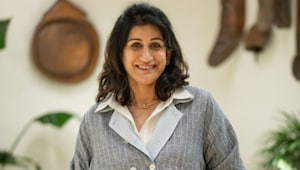Why sex education should be a part of school curriculum in India
Sex education does not mean wild kids indulging in depravity. It only means safer, healthier kids and reassured parents. Here's why…

It’s the year 2022 and sex education is still not mandatorily a part of the school curriculum in India. We may toot the cultural horn until kingdom come, but the reality is that no matter how virginal we want to pretend we are; a population of a billion plus people didn't happen with a wave of a wand. While I respect the fact that all parents have an opinion (and rightly so) about when their child should be exposed to the concept of sex, I strongly believe that at some point, sex education is a must for all kids. For those who think that sex education will lead to morally corrupt kids, here's a fact: a 2008 research shows that kids who received comprehensive sex education were 60 per cent less likely to report becoming pregnant or impregnating someone than those who received no sex education. I admit that this is a USA statistic, but are Indian urban kids all that different?
Here are some more reasons:
It boosts self-esteem and creates a safer world
In India, sex is still a taboo subject in most households and parents, even when they want to; find it difficult to have a frank discussion with children. That's where a school teacher can probably make their job a lot easier. The best place to impart knowledge is in school in a matter-of-fact manner, without exaggerations or undue shame attached to the subject. Sex education helps young people understand their bodies and gender roles in a positive way. It also helps them understand the course of their reproductive life such as puberty, menopause and ageing properly. In essence, these help in boosting their self-esteem and understand the fact that the changes they are experiencing or will experience are normal and nothing to be afraid or ashamed of.
Leeza Mangaldas, India’s leading sex-positive content creator feels that it is important for all schools globally to offer comprehensive sex education that is age appropriate and inclusive—with a focus not just on health and the body but also on topics like consent and pleasure—as part of their curriculum. “Comprehensive sex education that is pleasure inclusive and queer inclusive is central to greater gender equality, to improved sexual and reproductive health and rights, to ending sexual and gender-based violence, and to achieving a safer, kinder, more joyful world,” she says.
It helps in reducing unwanted pregnancy and STDs

It is undeniable that young people today are indulging in intimate activities in some way or the other, and if they are not appropriately educated about sex, they are likely to take protection lightly. Any pediatrician will tell you that the average age of puberty as well as becoming sexually active amongst teens has dropped dramatically in the last decade. It is important that young people receive age-appropriate sexual health information and develop practical skills for keeping healthy. They should know that unprotected sex can lead to many Sexually transmitted diseases (STDs) as well as unwanted pregnancies.
“While some people mistakenly think that access to sex education will result in everyone rushing to have more sex at a younger age, in fact, studies globally have shown that young people who have access to comprehensive sexuality education and who can talk to a parent or trusted caregiver about sex, sexuality, and sexual health, are more likely to delay having sex, and less likely to make choices that put their or another’s health and safety at risk,” stresses Leeza.
It helps in breaking taboos

Youngsters receive a lot of misinformation about sex through suggestive advertisements, music videos, movies, mobile phones, porn, reality TV, etc. Incorrect and harmful information is all over the place and very easily accessible. Would you prefer that your child believes unreliable information from quacks or receive factual information in a safe, non-threatening environment from professionals and experts? Proper sex education at school can dispel rumours, doubts and myths about sex and provide a realistic view of sexuality and reproduction.
A lot of this misinformation also stems from the fact that sex is considered a taboo subject in India. “So many of the oppressive and shame-laden attitudes to sexuality that we remain devoted to as if they are ‘our culture’ are actually a colonial inheritance,” opines Leeza. “Our society wasn’t always this attached to a rigidly binary conception of gender, compulsory heterosexuality, the shame around pleasure— it’s 2022 but we’re still stuck with Victorian ideas around sexuality and an obsession with all kinds of ‘purity’—many of these are an inheritance of colonialism, not the hallmarks of ‘Indian culture. The criminalisation of ‘unnatural sex’ under which homosexuality was criminalised in India till 2018, or the absurd law that is still in force in our country that deems that marital rape is legal— these are colonial-era laws and attitudes that we desperately need to discard,” she informs.
Globally, in almost every country in the world, even if to varying degrees, society still remains deeply committed to patriarchal ordering principles— and so the sexuality, rights, identity, and pleasure of women and queer people remain especially marginalised and stigmatised. This is very much the case in India too. “This refusal to talk about sex—at home, in school, in our communities— and the systemic mechanisms that deny people, especially unmarried people, women, and queer people—sexual and bodily agency and autonomy—at best results in millions of youngsters left to figure out for themselves everything from what consent is to how to have safe sex to how to have an orgasm; but at worst, it results in things like women being killed for not bleeding on their wedding night, and queer teens being sent to be ‘cured’ by conversion therapy,” says Leeza.
The taboos around sex and sexuality don’t serve anyone. They create and maintain a culture of shame and silence that is harmful and damaging. People hesitate to speak up against experiences of sexual violence, and hesitate to seek contraception, and other sexual health services because of the sense of shame and stigma that these taboos create. It is in everyone’s best interest to dismantle these taboos and educate youngsters about sex and sexuality.
It educates about good touch and bad touch

AIDS and teenage pregnancies may not be talked about, but they are most certainly a reality. A child needs to be comfortable about their sexuality and body from a very young age. They should know what a good touch is and what's a bad touch, they should know about consent and they should definitely know about the use of protection. All this can be achieved only by making sex education a compulsory part of the school curriculum.
The Good Samaritan
Research indicates that the vast majority of people, especially young adults today, turn to the internet— digital and social media content in general— when looking for answers to questions about sex, sexual health, and the body. Says Leeza, “This is why my focus remains to create free and engaging scientifically accurate sex education content online. My videos now reach millions of people across India and the world each day. Some of my sex education videos have even been used as community outreach, peer education, and teacher training tools by NGOs, social impact organisations, and educational initiatives globally, including IPPF Global, The YP Foundation, The Zero Period, and more.”
Leeza has also spoken to students at a few schools, in person as well as virtually, leading sex education sessions or workshops. “It gives me a lot of hope that already some schools in India are recognizing that sex education matters, and are opting to have someone like me come in as a guest speaker to talk to their students honestly and openly as opposed to having a fear-and-shame-based, abstinence-centred approach,” she says. She insists that more schools should have full-time sex-ed programs and they should invest in training and hiring teachers who can implement comprehensive sex education as part of the school curriculum since it is ‘not just a one-time conversation’.
In conclusion…
All we can say is that as adults, it is our responsibility to remember that what we may consider as ‘protecting our kids from the harmful influence of the West’ might, in reality, be their first steps towards misinformation. Remember the times when we thought that kissing could cause pregnancies? Yes, those days are gone (and thankfully so). I also think that the younger you make them learn; the easier it is for them to understand concepts like consent and consensual sex. That in turn leads to a generation that grows up respecting women and their bodies.
Also, remember, that it all starts at home. So, the next time your child brings a circular home asking whether you give the school permission to hold sex-ed classes, check on the box that says ‘Yes’ without a shred of doubt.
more from Life

How training for a marathon became the most honest conversation I have ever had with myself

Emily in Paris season 5 is back—and we’re still hate-watching every minute of it

The coolest restaurants across India that deserve to be on your foodie radar

10 queer shows and movies that bring the same messy, steamy heat as 'Heated Rivalry'

Why 'Heated Rivalry' has everyone hot, bothered, and obsessed

Regal revivals, fashion shake-ups, and everything new we’re obsessing over this month

When is the new season of 'Euphoria' out? Plus 5 things we know about it

Why glycolic acid is your skin's best friend for the winter season

Women have long been having sex on the first date—so why do some of us still feel shamed?

The 'shixie' is a modern take on the 70s shag haircut: 10 style ideas and how to wear the trending look
